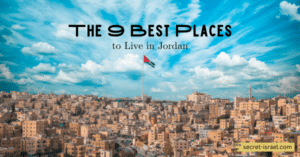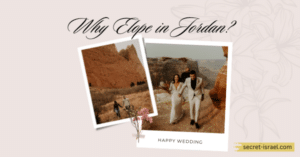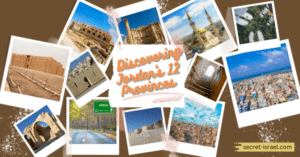Join us on a journey through time to discover the hidden gems of Jordan – a country that holds immense significance in Islamic history. With its grand mosques, sacred sites, and vibrant cultural events, Jordan offers an authentic and immersive experience of Islamic culture and heritage. From exploring traditional markets to visiting the final resting places of Prophet Muhammad’s companions, there is so much to discover in this beautiful country.
Jordan is a country that holds great significance in Islamic history. Located in the heart of the Middle East, it is often referred to as the “cradle of Islamic civilization”. We will explore the rich history and cultural significance of Jordan in the development of Islam, as well as its modern-day impact on Islamic practices and beliefs.
Influence and Importance of Religion in Jordan
Religion plays a crucial role in Jordanian society, shaping its culture, values, and way of life. Islam is the predominant religion in Jordan, with over 92% of the population adhering to it. The remaining 8% are mostly Christians, making Jordan one of the few countries in the Middle East with a significant Christian minority.
The influence of Islam can be seen in every aspect of Jordanian life, from its architecture to its cuisine. The country’s capital city, Amman, is dotted with magnificent mosques that showcase intricate Islamic designs and serve as centers for religious gatherings and community events.
Moreover, the holy city of Jerusalem, an important site for both Muslims and Christians, is just a short trip away from Jordan. It is believed that Prophet Muhammad declared Jerusalem the third holiest city in Islam, after Mecca and Medina.
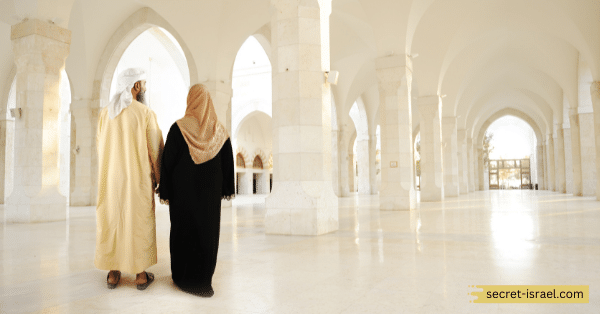
Pillars and Other Key Elements to Understand Islam
Islam is a monotheistic religion based on the belief in one God, Allah. It was founded by Prophet Muhammad in the 7th century and has since spread to become the world’s second-largest religion.
To understand Islam fully, it is essential to know about its key elements, including the Five Pillars of Islam:
- Shahada: The declaration of faith, where one declares their belief in the oneness of God and that Muhammad is the messenger of God.
- Salah: The ritual prayer is performed five times a day facing towards Mecca.
- Zakat: The obligation to give a portion of one’s wealth to charity for the benefit of those in need.
- Sawm: Fasting during the holy month of Ramadan, from sunrise to sunset.
- Hajj: The pilgrimage to Mecca that every able-bodied and financially capable Muslim is required to perform at least once in their lifetime.
Other key elements include the belief in the Quran as the holy book of Islam, following Islamic law (Sharia), and living a moral and ethical life based on Prophet Muhammad’s teachings.
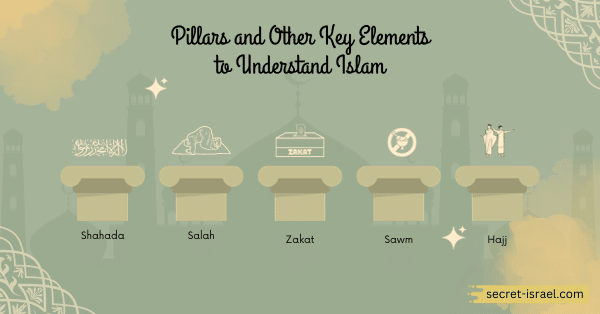
Mosques and Islamic sacred places in Jordan
As a predominantly Muslim country, Jordan is home to numerous mosques and Islamic sacred places that hold great significance for its people. These sites not only serve as places of worship but also as important cultural and historical landmarks.
- King Abdullah I Mosque in Amman. Built-in 1989, this grand mosque can accommodate over 7,000 worshippers and features stunning blue mosaic domes and beautiful calligraphy.
- Al-Husseini Mosque in downtown Amman. Dating back to the 7th century, this historic mosque has undergone several renovations but still retains its original character with its intricate wood carvings and colorful tiles.
In addition to mosques, Jordan is also home to many other significant Islamic sacred places, such as:
- Cave of the Seven Sleepers in Amman, where seven young men are said to have slept for centuries under divine protection.
- The Maqam Al-Nabi Hud (Tomb of Prophet Hud) in Jerash is believed to be the burial place of the prophet mentioned in the Quran.
- The Tomb of Moses in Mount Nebo is believed to be the final resting place of Prophet Moses, who is highly revered in Islam.
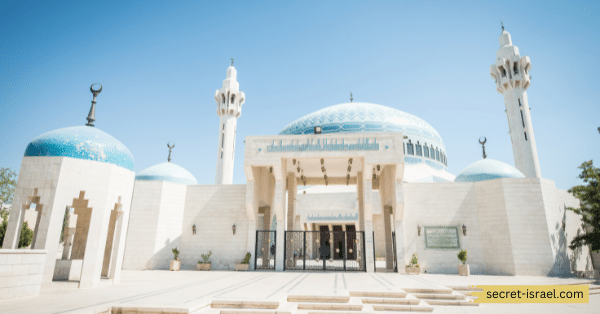
Graves of the Prophet’s Companions
In addition to the sacred places mentioned above, Jordan also holds special significance for being the final resting place of some of Prophet Muhammad’s (PBUH) companions. These individuals played a crucial role in spreading and preserving Islam during its early days. Their graves serve as a reminder of their dedication and contributions to the religion.
- Zaid ibn Harithah: the adopted son of Muhammad, holds the unique distinction of being the only companion explicitly mentioned in the Quran. His final resting place can be found in Al-Mazar, near Mu’tah.
- Ja’far bin Abi Talib: Muhammad’s cousin and the older brother of Ali, who later became Muhammad’s son-in-law through his marriage to his daughter, Fatima. The tomb of this revered figure can also be found in Al-Mazar.
- Abu ‘Ubaydah ‘Amer ibn al-Jarrah: One of the ten companions who were promised paradise is buried in the mosque bearing his name, located in the Jordan Valley. The serene resting place of this revered figure serves as a testament to his significant role in history.
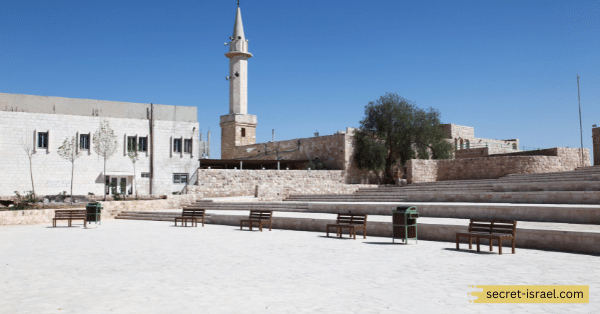
Experiencing Islamic Culture and Heritage in Jordan
In addition to visiting mosques and sacred places, there are many other ways to experience Islamic culture and heritage in Jordan. One can explore traditional markets (souks) in the cities, try traditional Jordanian cuisine such as mansaf (a rice and lamb dish), or attend a cultural event like the Jerash Festival, where you can witness traditional music, dance, and theatre.
The capital city of Amman also has several museums that showcase Islamic art and artifacts. The Jordan Museum is home to an extensive collection of ancient Islamic manuscripts, while the Royal Automobile Museum has a section dedicated to showcasing the history of Islamic transportation.
Jordan is truly a treasure trove for those interested in Islamic culture and heritage. Its rich history, diverse religious landscape, and welcoming people make it an ideal destination for anyone seeking to deepen their knowledge and understanding of Islam.
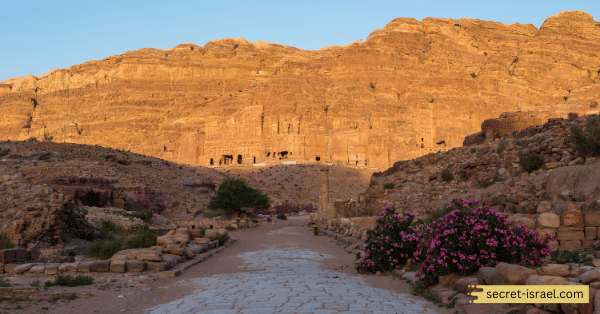
In conclusion
Jordan is much more than just a popular tourist destination – it is a country that holds immense cultural and religious significance. Its status as a cradle of Islamic civilization makes it a must-visit for anyone interested in exploring the roots of Islam and experiencing its rich traditions and customs firsthand.
From magnificent mosques to sacred sites and vibrant cultural events, Jordan offers an authentic and immersive experience of Islamic culture and heritage. So, why not plan your next trip to Jordan and discover the wonders that this beautiful country has to offer? So, pack your bags, and get ready for a journey through time in the heart of the Middle East – Jordan.




